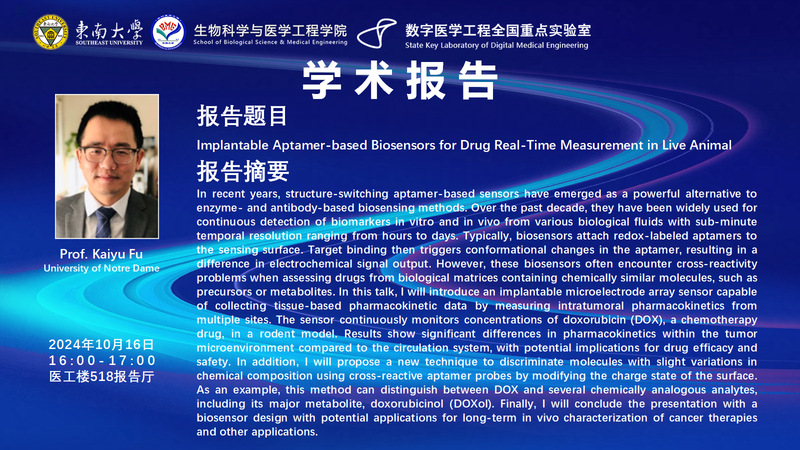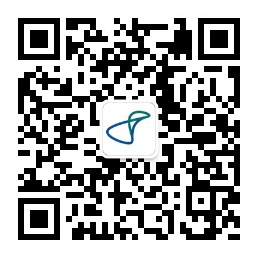报告题目:
Implantable Aptamer-based Biosensors for Drug Real-Time Measurement in Live Animal
报告时间:
2024年10月16日(周三)16:00-17:00
报告地点:
九龙湖医工楼518报告厅
报告摘要:
In recent years, structure-switching aptamer-based sensors have emerged as a powerful alternative to enzyme- and antibody-based biosensing methods. Over the past decade, they have been widely used for continuous detection of biomarkers in vitro and in vivo from various biological fluids with sub-minute temporal resolution ranging from hours to days. Typically, biosensors attach redox-labeled aptamers to the sensing surface. Target binding then triggers conformational changes in the aptamer, resulting in a difference in electrochemical signal output. However, these biosensors often encounter cross-reactivity problems when assessing drugs from biological matrices containing chemically similar molecules, such as precursors or metabolites. In this talk, I will introduce an implantable microelectrode array sensor capable of collecting tissue-based pharmacokinetic data by measuring intratumoral pharmacokinetics from multiple sites. The sensor continuously monitors concentrations of doxorubicin (DOX), a chemotherapy drug, in a rodent model. Results show significant differences in pharmacokinetics within the tumor microenvironment compared to the circulation system, with potential implications for drug efficacy and safety. In addition, I will propose a new technique to discriminate molecules with slight variations in chemical composition using cross-reactive aptamer probes by modifying the charge state of the surface. As an example, this method can distinguish between DOX and several chemically analogous analytes, including its major metabolite, doxorubicinol (DOXol). Finally, I will conclude the presentation with a biosensor design with potential applications for long-term in vivo characterization of cancer therapies and other applications.
报告人简介:
Kaiyu Fu is an Assistant Professor of Chemistry and Biochemistry at the University of Notre Dame, USA. He has co-authored more than 30 papers, one book chapter and one US patent. He is a recipient of the ACS Division of Analytical Chemistry Graduate Fellowship and the Chinese Government Award for Outstanding Self-financed Students Abroad. He received his B.E. (2011) and M.S. (2014) in polymer science and engineering from Sichuan University and Fudan University, respectively. He then received his Ph.D. (2018) in analytical chemistry from Notre Dame, followed by postdoctoral training at the School of Engineering and School of Medicine at Stanford University until 2022. He currently has broad interests in electrochemical biosensors, polymeric materials, nanoscience, and microfabrication.





